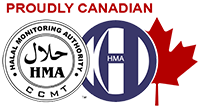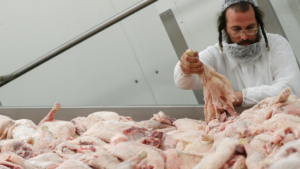With a growing Muslim population of over one million, there is an increasing need for more Canadian halal products. By 2020, Muslims will have spent over $3 billion on meals alone. Revenue growth has been consistent over the previous decade, indicating great potential. Establishing your brand as a recognized and trustworthy halal food provider might result in significant long-term financial advantages. Furthermore, a considerable amount of Canada’s Muslim population is young. With a median age of 28 years among Canadian Muslims, the future looks bright for businesses selling halal-certified goods; clients won today will be customers for years to come.
People who need to export their products might apply for a halal certificate. It abides by all of the terms and conditions. When using this certificate for your business, individuals must pay a modest fee. It has a particular validation, and after the certification has been validated, you must renew it. The procedure will take longer because Canada’s” HMA,”Halal Monitoring Authority, wants to check the premise and food supplier for halal certification. The Halal Monitoring Authority (HMA) recognizes the complexities of the food business. It has developed a three-part inspection strategy that covers the whole supply chain, from source to middlemen to retailers. HMA’s method entails product inspection from the point of origin through the end of packaging and finally to the point of delivery. HMA labeling and certification are available to help you make the best Halal decision. Obtaining a halal food certification can provide significant benefits to the business owner.
Halal certification can also be used as a marketing strategy in the food manufacturing industry, which includes hotel chains, restaurants, coffee shops, and cafés, among other things. The number of Muslims worldwide is growing every day, and providing halal cuisine in all parts of the world has become vital for marketing your brand or promoting your company.
Food is considered one of the significant aspects that influence visitors’ satisfaction with a destination, as it allows for a more fulfilling sensory experience by utilizing all of a tourist’s senses. Therefore, expenditure on food is a major item in the tourist budget, accounting for one-third of tourism expenditures and a primary source of earning tourism revenue. Local cuisines provide tourists with genuine cultural experiences of the host destination and serve as a core manifestation of its intangible heritage, thus providing marketable images of the goal. Historically, services and facilities frequented by Muslim tourists are different from those of conventional tourists. Therefore, halal cuisine is the most suitable and sought-after choice for them. This has led to an increased interest in Halal tourism, an emerging trend in the tourism and hospitality domain, which primarily focuses on developing and providing different tourism products and services to fulfill the distinctive requirements of Muslim tourists in conformance with their religious beliefs teachings.
Tourism-rich areas worldwide benefit from the production of halal cuisine and the sale of it to Muslim tourists. However, even if a food chain provides excellent taste and quality, hygiene if the food is not allowed in Islam, it will not be considered pure and eatable because it is not Halal. So it is now important, especially for larger companies, to obtain halal food certification from Muslim federations and provide halal certificates.
Neglecting the value of Halal food will inevitably affect a large number of people. If a food business owner or a large corporate group wants to expand globally in the food industry, ignoring halal certification will never help them gain a foothold in the global market or to outperform their competitors. The FSC (Food Safety Certification) is a hot topic in food science research and the regularity of food authority. Halal certification opens the door to more than 20 million additional customers across Europe. Halal International Authority provides orientation, information, expertise, and halal certification training to capture the global Halal market.
Such authorities certify the complete process from start to finish, including supply chain services, raw material extraction, method of preparation, input process inspection, and output process inspection.
Halal certification also helps to encourage the company’s internal customers. Muslim nations producing and marketing halal food in the food sectors are good for the outside market share and a positive and proud sign for the local employees in the factory. Individuals will be unable to work in the firms if they do not have a food safety certificate or a halal food certification. It may become a major barrier for the company to employ people who are not local. In today’s world, eating
Halal food is a top priority. Companies that keep all related difficulties and complications into halal certification and food certificate requirements are likely to be the most successful. Brands with the greatest knowledge of this criterion and unchangeable facts are raising the market with their complicated customer base. Many researchers have looked into the impact and effect of Halal certification on food manufacturing companies, analyzing their financial performance and annual revenue graphs, and recommending Halal certification as an asset to the company’s financial performance and receiving customer satisfaction responses.
The halal sign is more than simply a logo you may place on your goods. It shows that you value and comprehend Muslim customers. It denotes a rigorous and meticulous devotion to Islamic rule and a symbol of quality and cleanliness that appeals to a large segment of the Canadian population. HMA Canada takes halal certification seriously, and through our efforts, we hope to contribute to a brighter future for all Canadians.
Many businesses have been unable to tap into this potential revenue due to a lack of an easy-to-understand and cost-effective approach to get halal certified. With this enormous growth opportunity, the Halal monitoring authority Canada can help you expand your workflow and win market share. So for any query, feel free to contact us.



